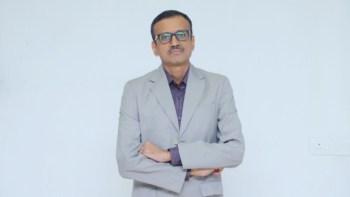What does the public think of radioactive waste? Edwin Cartlidge reports on a recent event that gave members of the public the chance to have their say on this controversial issue.
The media does not always give the public a balanced view of science. This was highlighted recently in the UK when newspaper stories of “Frankenstein foods” led to an outbreak of public anxiety over genetically modified food. To involve the public more closely with potentially sensitive scientific issues, several countries around the world have organized public debates in the shape of “consensus conferences”. Pioneered in Denmark, and used in Canada, the US, the UK, New Zealand, Australia, Korea and Japan, these conferences give informed members of the public the chance to quiz experts and come up with their own conclusions on complex issues.
One such issue is radioactive waste. The nuclear industry has long had an uneasy relationship with the public, and has had a problem when trying to convince local communities that it is safe to store long-lived radioactive waste in their backyards. Two years ago local protests scuppered the plans of Nirex, an industry-owned body, to transfer radioactive waste from temporary surface storage to a deep repository at Sellafield in Cumbria.
In March this year a report from the science and technology committee of the House of Lords put deep storage back on the agenda. The committee concluded that “phased geological disposal” was the best way to deal with radioactive waste. But it recognized that such plans would have to be accepted by the general population. It added that in the past the industry had tried to force its plans on the public. Instead, says the report, “a national policy [on nuclear waste] must be established with which the public is broadly content”.
The public has now had its say. Over four days in May a panel made up of 15 members of the public prepared its own report on radioactive waste after questioning representatives from the nuclear industry, government and environmental groups at a consensus conference in London. The panel was selected to represent a cross section of the public: the number of men and women were evenly balanced, as were educational backgrounds and regions of the country. The panel did plenty of background reading beforehand and was free to choose the questions and the experts. The meeting was set up by the UK Centre for Economic and Environmental Development, an independent charity, and was funded by the government and Nirex.
So what did the panel conclude? It felt that waste should be removed from the surface and stored underground, but, in contrast to the Lords committee, believed this should only be an interim solution. It felt that the waste should be easily retrievable, hoping that science would come up with ways to make the waste non-hazardous. It also concluded that the UK’s existing international reprocessing contracts should be honoured but that no new contracts should be taken up.
The panel believed that if the waste problem can be adequately dealt with, then the UK should continue, and perhaps expand, its use of nuclear energy. One of the panel members, Anna Hiett, said her preconceptions had been changed. “I had heard horror stories of two-headed chickens running around Sellafield, but having taken part in the consensus conference I now feel much more comfortable with the whole thing,” she said. The panel also noted a “welcome shift in culture” from the nuclear industry, and said industry representatives inspired a new feeling of openness in dealing with difficult issues.
The panel’s views have drawn praise from both sides of the nuclear debate. British Nuclear Fuels (BNFL) welcomed the report, accepting that there has previously been a lack of trust between the public and the industry. Patrick Green, Friends of the Earth’s senior nuclear campaigner, disagreed that waste needs to be stored underground, but said that the panel had a “refreshing, common-sense view”.
This is a feature of consensus conferences according to Steve Fuller, a sociologist at Durham University. “No consensus conference has ever come up with screwy proposals, although they are possibly a little conservative in their conclusions,” he says.
John Durant, professor of the public understanding of science at Imperial College, London, believes that such public consultation is extremely important in dealing with sensitive issues related to science and technology. “A consensus conference can tell you how disinterested people react when they learn a bit. It can act as a sort of early warning device,” he told Physics World.
The UK has held one previous consensus conference, in 1994, when the now thorny issue of plant biotechnology was discussed. If more attention had been paid to the outcome of this, says Durant, then the UK’s recent scare over genetically modified foods could have been avoided.
The problem with the biotechnology conference was that it did not feed into government policy. Will this be any different in the case of nuclear waste? A spokesman from the Department of the Environment, Transport and Regions (DETR) said that the conclusions of the panel “showed remarkable insight into the problems facing policy-makers in this area”. But the DETR would make no commitment beyond saying that the government would be “considering [the panels] views” when preparing its own consultation document on the subject.
In Denmark consensus conferences often do have a direct political impact. Following meetings in 1989, the Danish parliament banned food irradiation (except for dry spices), and outlawed genetic testing for recruitment and insurance claims. “In Denmark there is a tradition of ‘people’s enlightenment’,” says Lars Kluver of the Danish Board of Technology. “This is a big difference between Denmark and the UK – my impression is that people in the UK feel further from parliament.”
But there are those in the UK who believe that the government should be left to do its job. As evidence to the Lords report, David Fishlock, former science editor of the Financial Times, said that “….the public should not be expected to have an opinion. There are many things for which quite legitimately the public looks to government to make up the mind of 56 million people. Nuclear energy is a matter that is largely in government hands and is a matter for government decision”.
Needless to say this was not the view of the panel, who said they were “deeply offended” by this remark. Panel member Pam Phillipou thought that everyone in the panel had gained from their experience. Anna Hiett was equally forthright: “Apart from marrying my husband, this is the most exciting and rewarding thing I’ve ever done.”



